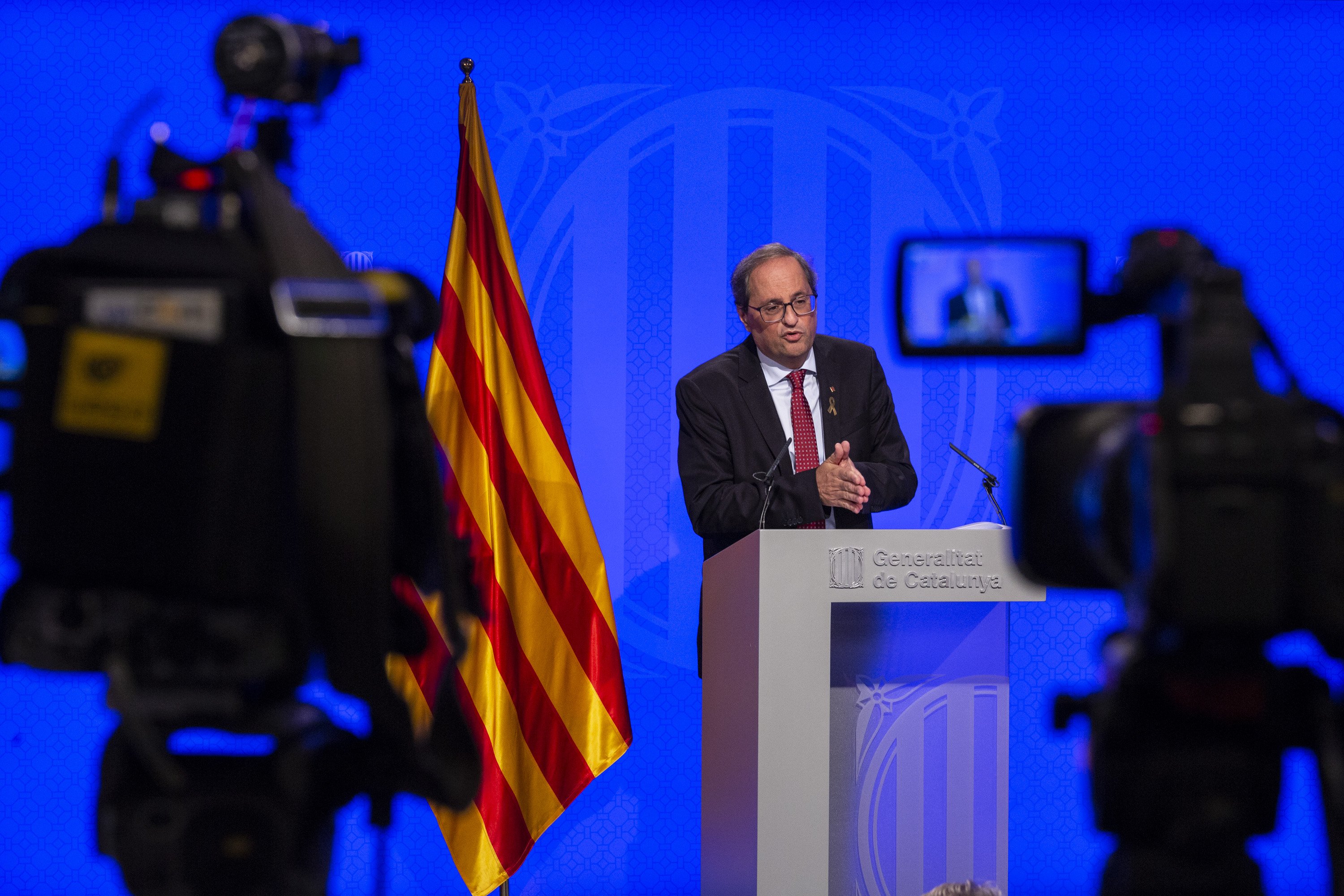The Catalan president, Quim Torra, has announced this Tuesday that, before 15th October this year, his government will set up the Social and Constituent Civil Forum. This forum is to open a "deep" debate around the country aiming to devise the "basis for what the Constitution of Catalonia has to be".
The Forum will have delegations in every vegueria (a Catalan territorial division slightly smaller than a province) and the hope is to promote a debate like the one 40 years ago with the Congrés de Cultura Catalana after Franco's death. "We will need the collaboration of the public who want to collaborate freely in this phase zero of the project of the Constitution of Catalonia," said Torra. Although he didn't want to give names, he said the council will be "broad, plural and very diverse".
Four years of legislature
This is one of the points in the government manifesto the president presented in the press conference following this Tuesday's press conference.
After days of tension with their ERC colleagues which even led to questions about the continuity of the cabinet, Torra wanted to make it clear that they plan to serve the full four years of the legislature and that today's manifesto covers the whole period. "We're aware of the exceptional situation, but this situation cannot stop us from moving ahead with our objectives," he said.
A budget without PSC
He also expressed conviction that his government will be able to pass a budget for next year, although he counted out doing so with PSC.
Together with the Civil Forum, and within the section on strengthening democracy, Torra said the among the projects his government is to enact shortly are the Office of Civil and Political Rights and the proposal of the march for civil, social and national rights, as well as bringing back suspended laws: "if the [Spanish] government doesn't lift the suspension of social laws, we'll lift it ourselves, approving them again in the Parliament," he said.
Warning for Sánchez
Today's was the first government press conference given by Torra himself. One of the central themes was his call for the Spanish prime minister, Pedro Sánchez, to specify his proposals for dialogue.
He warned that the Spanish state has a lot it has to do in the face of the very serious situation in Catalonia, with exiles and political prisoners, and demanded to know what Sánchez means when he talks about dialogue and political solutions.
Torra asked Sánchez for "transparency and sincerity" and mentioned Carles Puigdemont's suggestion for international mediation. "We could find a political solution with a negotiated referendum. The proposal is very clear and Pedro Sánchez's proposal, we don't know what that it," he said.
No pardons
What he did directly reject was the proposal from the Spanish government's delegate to Catalonia, Teresa Cunillera, for pardons. He replied that none of the political prisoners has said they want to ask for a pardon, nor does he think they should. "Exercising democracy isn't a crime, the crime is for them to hit you," he said.
The response to the agreement between pro-independence parties to take the suspensions of the political prisoners as parliamentary deputies to the Parliament will also allow them, the president believes, to see how willing for dialogue Sánchez really is. Asked on the matter, he said that it would greatly surprise him if the Spanish government, which says it's willing to talk, should appeal the decision to debate the suspensions in the Parliament. "I don't even imagine that the Spanish government is contemplating appealing," he said.
The president insisted that the restoration of the Catalan government remains key, but warned that although they restored the suspended institutions, a fundamental part is still to come, president Carles Puigdemont. "The restoration will never be complete until our political leaders and president Puigdemont return," he said. Torra noted that the political prisoners are the tip of the iceberg of a situation which has affected around 1,500 people who have been investigated in Catalonia.

